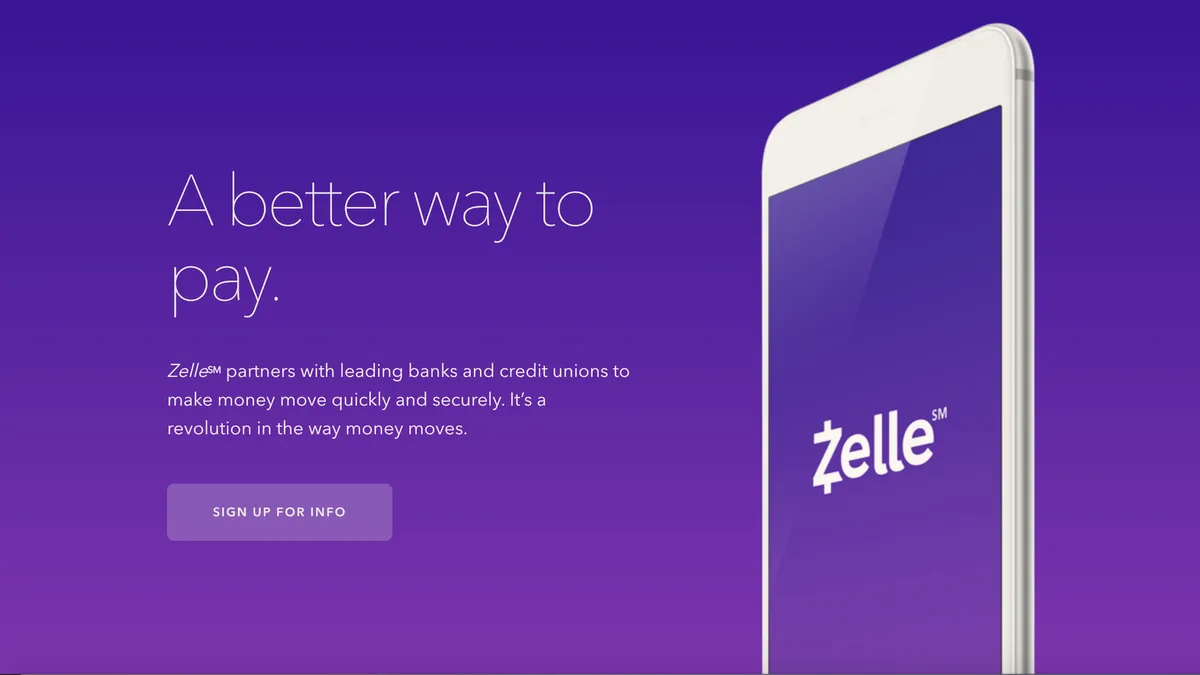Dive Brief:
- Zelle facilitated 171 million transactions worth $44 billion during the quarter ending June 30, Early Warning Services, which operates the peer-to-peer payments platform, said in a release.
- Year-over-year payment values increased by 56%, while transaction volume increased by 71% during the quarter.
- Early Warning Services said 480 financial institutions have signed up to participate on its platform, including 179 that are processing transactions.
Dive Insight:
The Zelle platform, which is owned by a consortium of the country’s largest banks, could see continued growth as more financial institutions adopt the mobile app, Patricia Hewitt, principal at Savannah, Georgia-based PG Research & Advisory Services, told Digital Transactions.
"Zelle has an advantage once it gets integrated into more mobile-banking apps," Hewitt said. "That's because consumers still trust their banks with their money and will feel comfortable transacting with their bank."
Key drivers for Zelle’s growth can be attributed to its "Everyday Better" marketing campaign, Lou Anne Alexander, Early Warning Group's president of payments, told Business Insider Intelligence.
The campaign highlights the platform's ability to facilitate transactions in common situations, such as monthly rent payments or monetary gifts for a new graduate.
"Efforts like these might have led consumers to consider using the platform in ways they'd previously not thought of, and likely accounted for some of Zelle's transaction volume further as a result," Business Insider wrote.
As Zelle continues to grow, a core competitor remains PayPal's Venmo, which reported more than 40 million users and $21 billion in transaction volume for Q1, representing a 73% year-over-year growth. According to Digital Transactions, that volume represents half of PayPal's total peer-to-peer value total, "which includes the company’s traditional payment service between users." Zelle does not release its user numbers.
While both PayPal and Venmo continue to report transaction and volume growth, that growth is slowing, which could be a sign of market maturation, according to Business Insider.











